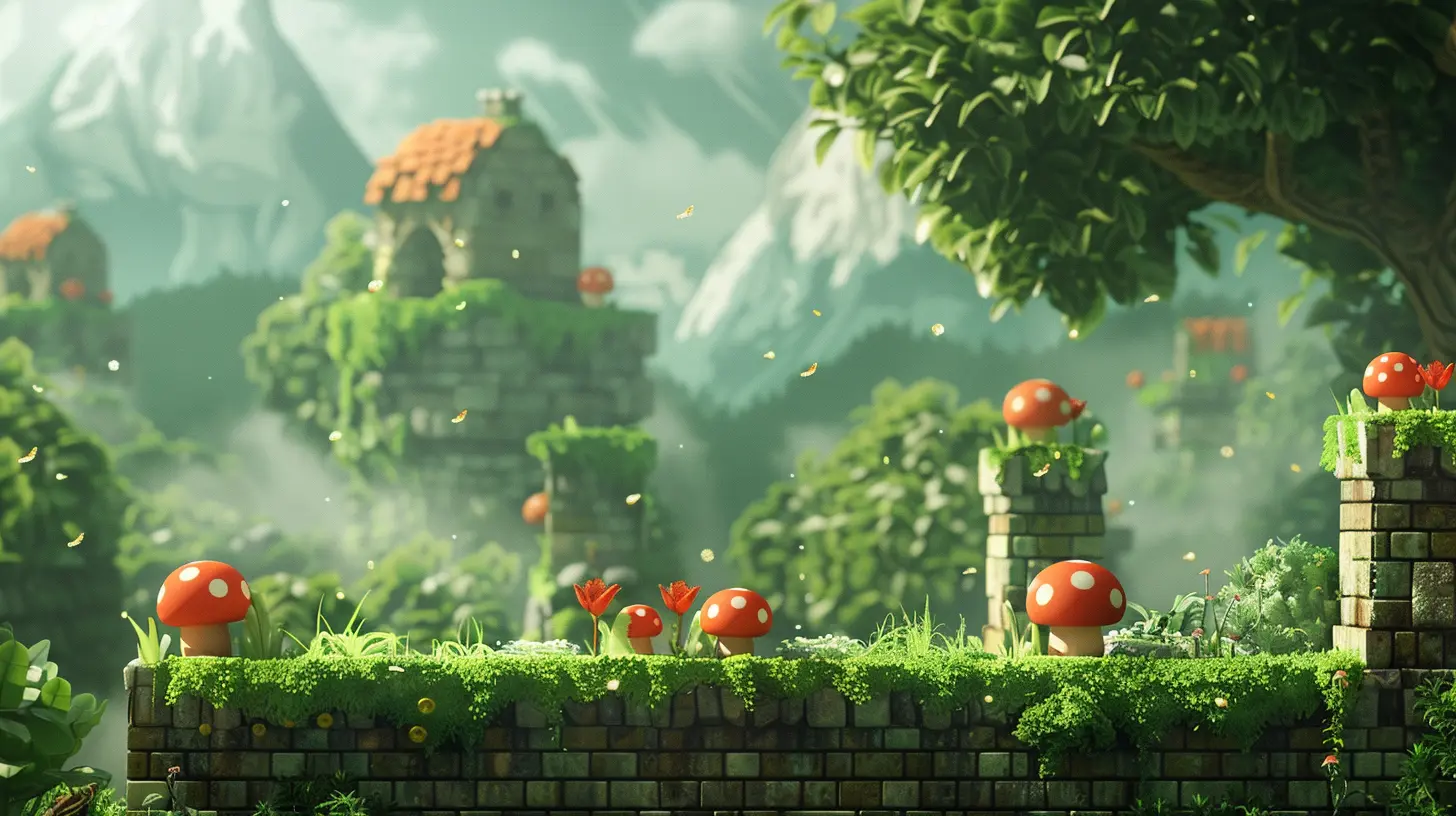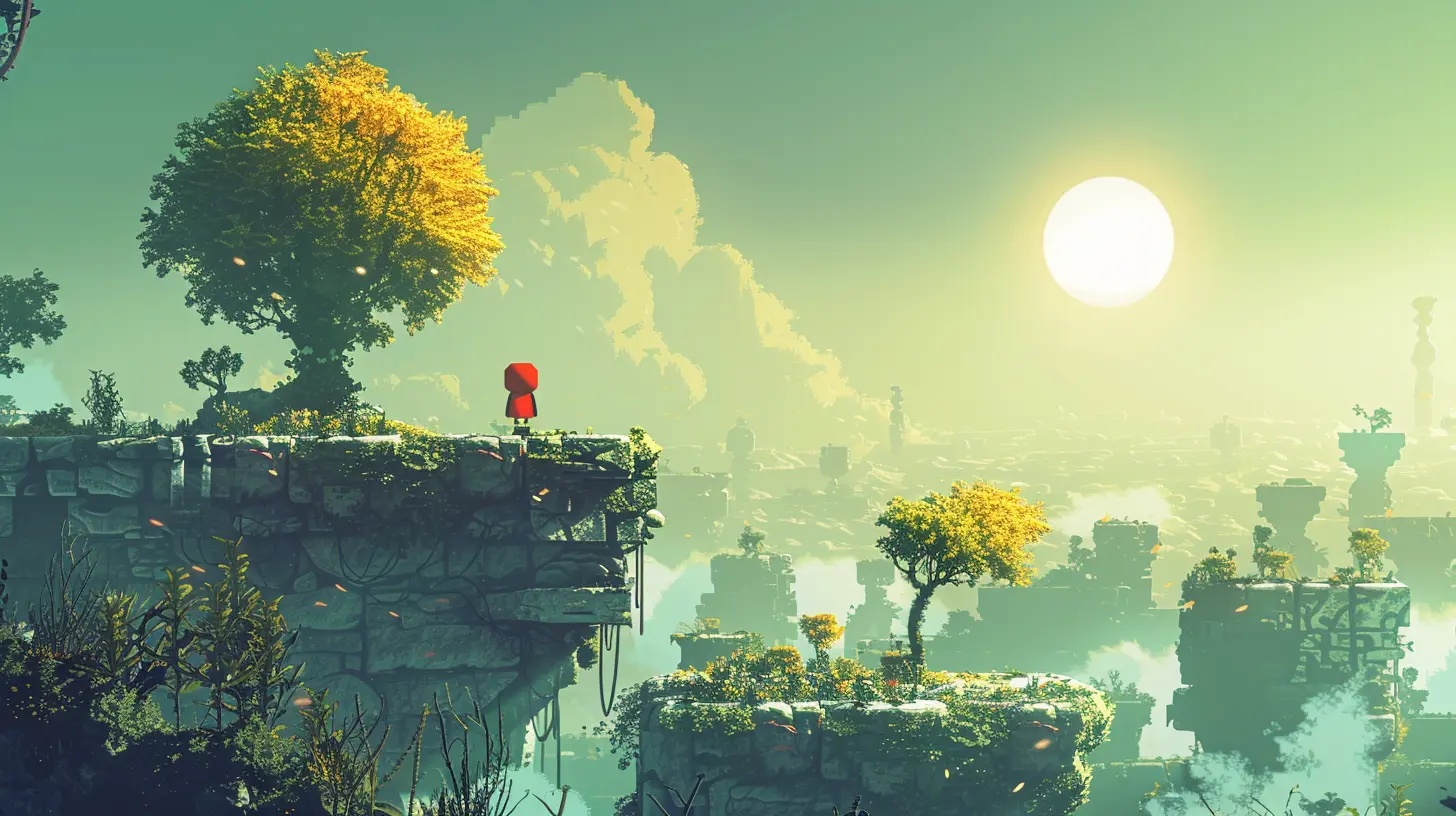How Platformers Teach Us Patience, Precision, and Persistence
13 July 2025
Let’s be honest—platformers have a special place in our gaming hearts. Whether it’s the pixel-perfect jumps of Super Mario Bros. or the emotional rollercoaster of Celeste, platformers challenge us in ways that other genres just don’t. Sure, action RPGs let you grind your way to power, and open-world titles offer freedom galore, but platformers? They test your spirit. They make you want to toss your controller one second and scream with joy the next.
But here's the cool part: platformers aren't just about jumping from one ledge to another. They're lowkey training us in real-life virtues—patience, precision, and persistence. Yup, those three tricky Ps that everyone says are important in life but rarely teach how to develop. Until you play a platformer, that is.
So grab your controller (or keyboard), and let’s break down how these side-scrolling gems do way more than kill time.
The Roots of Platforming: Simple Mechanics, Deep Life Lessons
Platformers date back to the golden age of gaming. Think Donkey Kong (yep, Mario debuted there!) or Pitfall! on the Atari. Simple graphics, straightforward gameplay — but oh boy, the difficulty. They made you work for that high score.These early games didn't hold your hand. No tutorials, no checkpoints every 30 seconds. You had to pay attention, memorize patterns, and get your timing just right. And as frustrating as that sounds, it’s exactly why we learned patience, precision, and persistence without even realizing it.
Let’s zoom in on these three traits and see how platformers deliver them with style.
1. Patience: Timing Is Everything
Ever tried to jump across a pit in a platformer only to mistime it and faceplant into certain doom? Of course, you have. We all have.Platformers train your patience like a wise old sensei. You can’t just rush everything—trying to blaze through a level usually ends in disaster. You learn that sometimes, you need to wait for the moving platform to come near. You need to watch the enemy’s pattern before you act. You need to breathe before making that leap of faith.
Micro-Moments of Mindfulness
Believe it or not, waiting for just the right moment to jump is a tiny practice of mindfulness. You're focused on the present, your mind tuned into the game’s rhythm. That’s patience in action. It’s not just waiting—it’s active waiting.And isn’t that a life skill? Whether it's holding out for the right job opportunity, dealing with a slow internet connection, or waiting in a long line at the DMV—platformers prep us for those moments better than any meditation app.
Games That Nail It:
- Celeste: With its brutally precise platforming and story-driven narrative, this game literally teaches you to slow down and focus.- Hollow Knight: Some jumps and boss patterns in this game are zen-inducing once you master the patience needed.

2. Precision: Every Move Counts
In platformers, margin for error is often razor-thin. A single pixel can be the difference between a win and a retry. It’s like walking a digital tightrope where your success depends on perfect timing and accuracy.Training Your Inner Sharpshooter
Think of every jump, slide, or wall-cling as an exercise in control. You learn to press buttons with just the right amount of force, angle your jumps perfectly, and time your attacks to the millisecond. That’s not just button-mashing—that’s finesse.On a deeper level, precision in platformers teaches us to value details. You start recognizing level patterns, you begin to understand how the game’s physics work. You become, well… better. Sharper. More focused.
Real-Life Parallels
This hyper-awareness transitions well into life. Need to thread a needle? Navigate a narrow parking spot? Write a killer résumé without typos? Thank your platforming practice.Games That Require Surgical Precision:
- Super Meat Boy: Infamously tough, this game demands pinpoint accuracy—but the satisfaction of nailing a level is unmatched.- Ori and the Blind Forest: Graceful, poetic, and brutally exact, this is platforming ballet.

3. Persistence: The Glory of the Retry
Let’s not sugarcoat it—platformers are tough. You will die. A lot. Those “Game Over” screens? Yeah, get cozy with them. But here's the thing: in this genre, failure isn’t final. It’s part of the journey.Death Is Just Feedback
Every missed jump, every unexpected enemy hit—those aren’t punishments. They’re clues. Like a teacher with a red pen, the game is telling you: almost, but not quite. Try again. And again. And again.And eventually… you nail it.
There’s a special kind of joy in getting past that one maddening level after 27 tries. It’s the joy of persistence paying off. Of not giving up. That’s a powerful lesson disguised in pixel art and chiptune music.
The Resilience Muscle
Every retry builds a muscle we rarely work on—resilience. You learn that it’s okay to fail as long as you keep going. If that’s not a life lesson, I don’t know what is.Games That Build Grit:
- Cuphead: With its old-school cartoon visuals and punishing difficulty, it’s less a game and more a bootcamp for your soul.- Crash Bandicoot N. Sane Trilogy: The remastered version reminds us just how tough the original games were, and how rewarding it is to finally beat that one nasty level.
The Emotional Rollercoaster: Why We Keep Coming Back
What keeps us glued to platformers, even when we yell at the screen? It’s the emotional payoff. The “Yes! I did it!” moment that comes when patience, precision, and persistence finally click together.It’s kind of like baking a soufflé—one wrong move and it collapses, but when you get it right? Perfection. You feel like a god.
Platformers turn small victories into epic triumphs. They celebrate progress, not just completion. Every level passed feels like a personal win. And that sense of growth? That’s not something many games deliver with such purity.
More Than Entertainment: Platformers as Life Coaches
It might sound weird, but platformers are kind of like personal development gurus in disguise. They don’t lecture you about building character. They make you live it. One frustrating level at a time.They teach you that rushing doesn’t pay off (patience), that details matter (precision), and that giving up gets you nowhere (persistence). All while having fun. Who knew 8-bit characters could be so wise?
The Community Aspect: Shared Struggle, Shared Joy
Let’s not forget the social side of platforming. From old-school couch co-op to Twitch streaming modern indie hits, there's a community built around shared struggle and mutual support.Ever watched someone beat a level you were stuck on for hours? It’s like watching magic in real life. And then you try again—with renewed hope.
Forums, YouTube guides, speedrun videos—all of it creates a sense that you're not alone on this journey. And knowing that everyone struggles with the same jumps makes the grind feel a lot less lonely.
Final Thoughts: Lessons That Stick With You
So the next time you boot up a platformer and find yourself swearing under your breath because you missed that jump again, take a breath. Remember what you’re really learning:- You're honing your patience by timing your moves instead of rushing.
- You're sharpening your precision by paying attention to every pixel and frame.
- You're reinforcing your persistence by refusing to let failure define you.
These aren't just gaming skills. These are life skills. And they’re delivered by adorable sprites, quirky soundtracks, and colorful levels that challenge your thumbs and your mindset.
So let’s raise our controllers to platformers—the unsung heroes of character development. They’ve been training us all along. We just didn’t know it.
all images in this post were generated using AI tools
Category:
Platformer GamesAuthor:

Tina Fisher
Discussion
rate this article
2 comments
Finley McLoughlin
This article insightfully highlights how platformers cultivate essential life skills. The interplay of patience, precision, and persistence not only enhances gaming enjoyment but also fosters resilience and problem-solving abilities that resonate beyond the screen.
November 28, 2025 at 5:04 PM

Tina Fisher
Thank you for your thoughtful comment! I'm glad you found the article insightful in highlighting the valuable life skills developed through platformers.
Siena Cross
This article insightfully highlights how platformers cultivate essential life skills. Through trial and error, players learn to embrace patience, refine their precision, and develop persistence, making these games valuable for fostering personal growth beyond just entertainment.
July 20, 2025 at 4:19 PM

Tina Fisher
Thank you for your thoughtful comment! I'm glad you found the article highlights the valuable life skills that platformers can instill in players.


